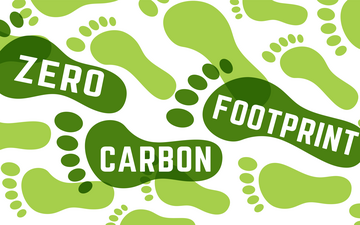- Official BOC UK Online | Industrial Gases | Products & Solutions | BOConline UK
-
Shop
- Industries
- Processes
- Gases & Equipment
-
Solutions
-
Services
-
Health & Safety
-
Contact & Support
- What's Happening
-
Net Zero Strategies
What options are there for food producers to reduce their carbon footprint?
Posted by BOC

The food and drink industry is under increasing pressure to act on net zero – but where should manufacturers start?
Food and drink manufacturers are coming under increasing pressure to reduce their carbon emissions.
Aside from the positive reasons to take action on climate change, all manufacturers – particularly those whose operations include high heat processes – face a triple threat of imperatives to get on the pathway to net zero now:
- rapidly increasing carbon taxation, and a widening of the criteria to fall within the remit for carbon taxes
- high energy costs and price volatility
- consumer demand for more carbon efficient products.
What are your options to get moving on net zero?
Reducing carbon emissions looks different for every producer – there’s no one-size-fits-all approach, so it’s critical that whatever you plan, works for your business.
Importantly, the path to decarbonisation doesn’t require changing everything all at once. You can take the process step-by-step.
Start by looking at your processes, consider those that produce the most carbon (usually those that are the most heat-intensive), and think about your options to reduce your emissions.
The UK Government has set out three approaches for industrial decarbonisation:
- resource and energy efficiency
- fuel switching
- carbon capture and storage.
Improving energy efficiency is a natural first step for anyone looking to decarbonise – and there is an urgent incentive to do so, with the significant increase in energy prices.
All businesses can start by assessing their energy dependence, considering ways to bring this down, and setting organisation-wide reduction targets.
Some of these steps can be quite simple, such as powering down machinery that isn’t in use, introducing automated lighting, improving ventilation – while others, such as introducing oxyfuel combustion into intensive processes to reduce fuel gas, can have a significant decarbonisation impact.
Fuel switching
For many food and beverage producers, switching to a lower carbon fuel can be an additional, achievable and practical step.
Hydrogen has been identified by the Government as a crucial low carbon alternative fuel, and they are investing heavily in a series of significant hydrogen projects throughout the UK.
BOC itself has been selected as a trusted hydrogen supplier for multiple demonstrations, including the BEIS Phase 1 industrial fuel-switching trials. Under this scheme, we’ve partnered with a number of producers across a range of hard-to-abate industrial sectors including glassmaking, concrete and consumer goods to successfully demonstrate the feasibility of a switch to hydrogen (you can read more at our Hydrogen and Decarbonisation News hub.)
Why hydrogen?
Unlike fossil fuels, when hydrogen is burned to create heat, it doesn’t release carbon dioxide – only water. It also provides the highest amount of energy per kg vs alternative fuels.
Critically for UK industry, it can be blended with natural gas, and requires very little modification to equipment in order to accommodate this change. In fact, as little as a 20% mix of hydrogen with natural gas could lead to as much as a 6-8% reduction in carbon emissions (and is the reason for the HyDeploy project, which is trialing the feasibility of a 20% hydrogen blend through the gas grid.)
Testing a hydrogen blend is a pragmatic stepping stone to a more intensive trial, and perhaps a full fuel switch down the line.
In our webinar with Food Manufacture, we went into more detail on the fuel switching process, and answered questions about changing to hydrogen in individual food and drink segments.
If you are interested in discussing your options to reduce your emissions, or would like to explore hydrogen as a potential decarbonisation solution for your food and drink business, speak to our experts.
